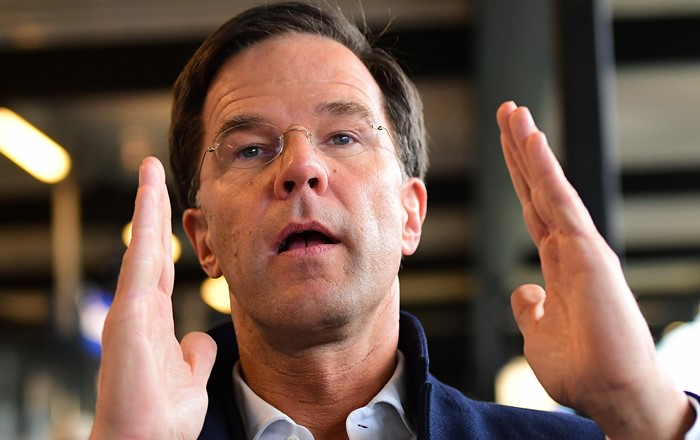Dutch Prime Minister Mark Rutte told reporters that his country’s ambassador to Turkey did not walk back a call to release jailed Turkish philanthropist Osman Kavala and said he told Turkish President Recep Tayyip Erdoğan that the Netherlands would continue to draw attention to decisions taken by the European Court of Human Rights (ECtHR), which had previously ruled for Kavala’s release, Dutch media outlets reported.
“I explained to him [Erdoğan] once again that when the Strasbourg human rights court makes decisions, the Netherlands always reserves the right to draw attention to it,” Rutte told reporters in Rome at the end of the G20 summit. “I’ve told the president we’re going to do that in the future.”
Ten embassies in Turkey — including those of Germany, France and the US — issued an unusual statement on Oct. 18 calling for the “just and speedy” resolution of the legal case against Kavala.
The 64-year-old philanthropist and businessman has been in jail without a conviction for any crime for four years.
President Erdoğan, who had originally threatened the ambassadors on Oct. 21 and then doubled down — declaring the 10 ambassadors persona non grata — in televised comments on Oct. 23, last Monday announced, after a cabinet meeting at which his ministers reportedly advised him about the economic dangers of escalating tensions with some of Turkey’s closest allies and trading partners, that the 10 ambassadors had learned their lesson and “will be more careful now.”
Erdoğan’s change in attitude, which came after identical statements were issued by the US and other countries saying they respected a UN convention that required diplomats not to interfere in the host country’s domestic affairs, was widely considered by international media outlets as a “step back” on the president’s part.
Rutte explained to the press that the Netherlands and the other Western countries do not see the call as “interfering with internal affairs” but as “affirming more universal values.”
He said he “disagrees” with the opinion held by many in the Netherlands that the ambassadors backed down.
Supporters view Kavala as an innocent symbol of Erdoğan’s growing intolerance of political dissent since surviving a failed military putsch in 2016.
But Erdoğan accuses Kavala of financing a wave of 2013 anti-government protests and then playing a role in the coup attempt.
Kavala’s case could prompt the Council of Europe human rights watchdog to launch its first disciplinary hearings against Turkey at a four-day meeting ending on Dec. 2.
The ECtHR ruled in December 2019 that the prolonged pretrial detention of Kavala was in violation of the European Convention on Human Rights and ordered his immediate release. But Turkey has failed to abide by the ruling despite repeated calls by the Council of Europe’s Committee of Ministers.



